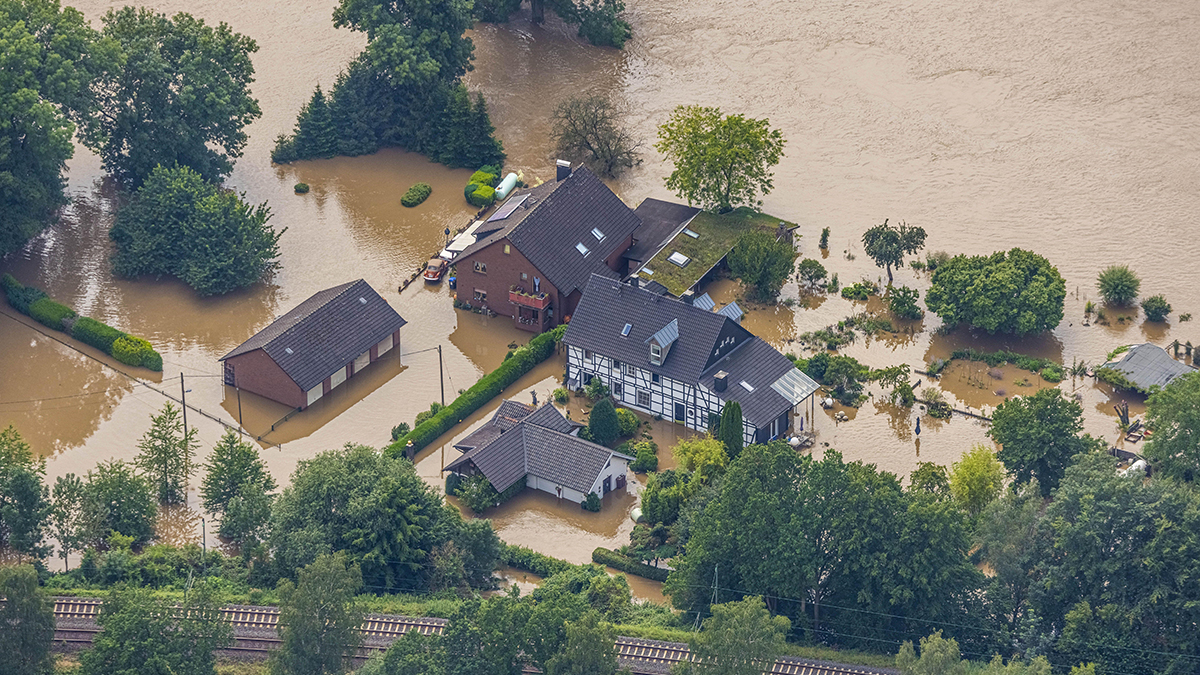Scor open to writing more catastrophe business
Laurent Rousseau says he believed the market as a whole is reaching a 'tipping point' that will 'accelerate' a hardening of rates in property catastrophe reinsurance
Improving price adequacy could lead to change of appetite, French carrier’s executives say, as Munich Re warns of capacity fall
Scor is open to taking on more natural catastrophe exposure if price adequacy can be achieved, its property/casualty (P&C) unit’s chief executive said.
The French reinsurance giant has been cutting its exposure to property catastrophe risk at recent renewals in favour of global lines of business.
But Jean-Paul Conoscente, chief executive of Scor Global P&C, said the company would reverse that approach if rates improve.
“We have reduced our exposure [to catastrophe] as pricing is inadequate. If pricing improves, we will take a different view,” he said. “It depends how the discussions [at Monte Carlo] go.”
At the mid-year renewals, Scor’s gross reinsurance premiums decreased 9.8%, with a 24% decline in the US, where the company significantly decreased its exposure to natural catastrophes, most notably in Florida.
Catastrophe writers are hoping the January 1 renewals will see significant hikes in rates at the January 1 renewals as the market responds to the rising cost of secondary perils, coupled with the impact of surging inflation and other macroeconomic challenges.
Scor chief executive, Laurent Rousseau, said he believed the market as a whole was reaching a “tipping point” that would “accelerate” a hardening of rates. “We are switching from an abundance of capital to one of scarcity,” Rousseau said.
For the first time since 2018, lower reinsurance capital is projected for 2022, with an 8% year-on-year decline to $435bn, according to data released by AM Best and Guy Carpenter.
European reinsurers have been hit particularly hard because the economic challenges are further topped by the sharp rise in the US dollar against the euro.
As a result, US dollar-denominated liabilities have increased appreciably when converted to euros, which has had an impact on capacity.
Munich Re board member Torsten Jeworrek said inflation was creating “considerable uncertainty” and the January 1 renewals would be “much more challenging” as a result.
But he said there was no reason for Munich Re to shrink capacity “so long as assumptions and pricing conditions are prudent”.
Around 60% of Munich Re’s treaty book will be up for renewal in January.
But despite shrinking capacity, Munich Re expects demand to increase. It anticipates the global reinsurance market will grow at least as much as the primary market until the end of next year.
The carrier’s economic research department expects the global reinsurance sector will grow between 2% and 3% from 2022 to 2024, adjusted for inflation, with the strongest growth of between 4% and 5% seen in Latin America.
“We will only provide capacity where prudent assumptions can be translated into business terms,” Jeworrek said.



